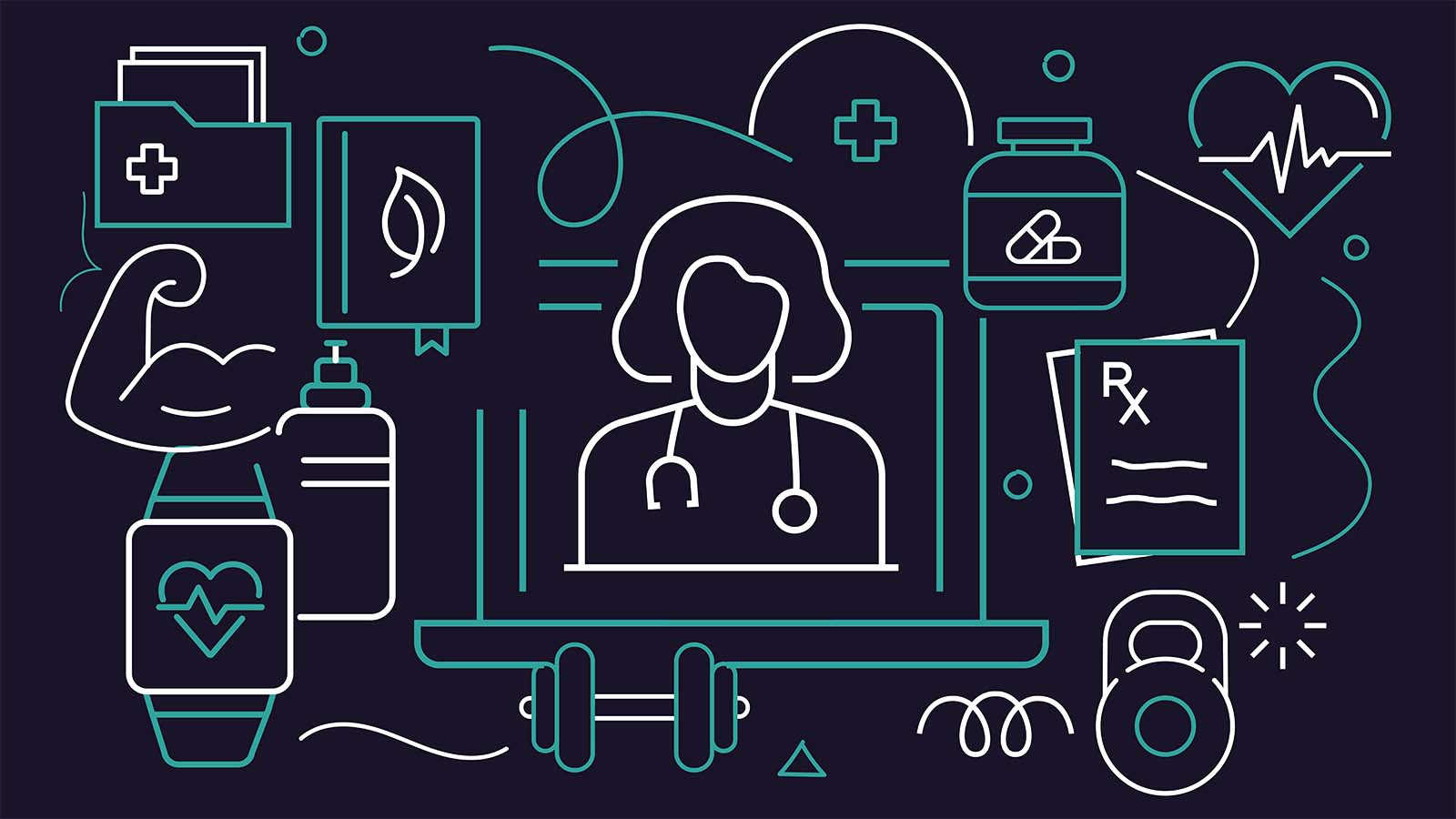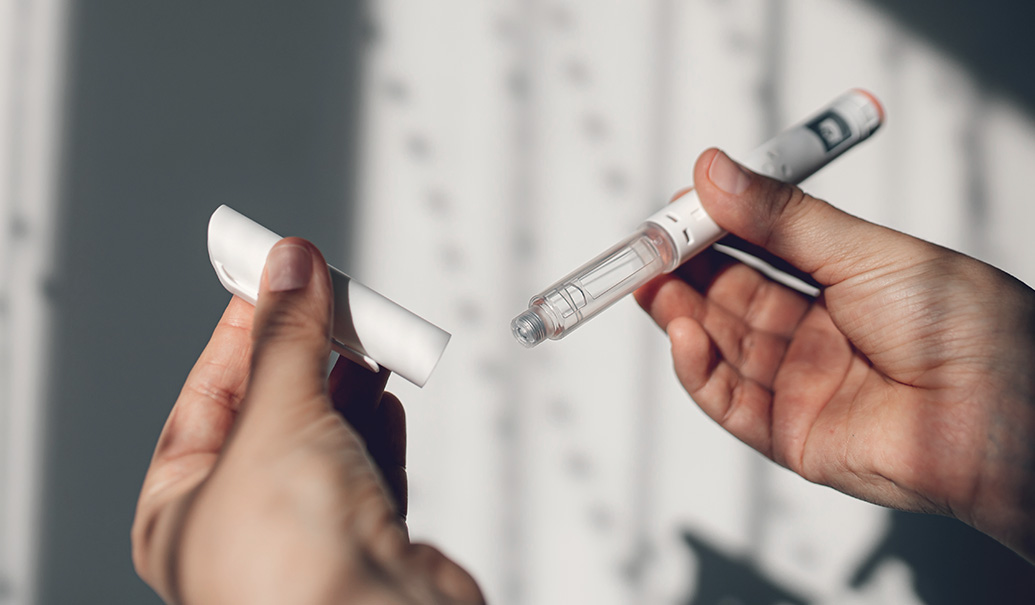Imagine if an individual diagnosed with multiple chronic conditions could turn to one mobile app to manage their care plan. In the background, an algorithm analyzes how the medications they’ve been prescribed could be interacting. A smartwatch tracks what toll the last few nights of poor sleep could have on their sleep apnea. When that same individual visits a retail healthcare setting for a sore throat, their primary care doctor has visibility into the encounter via an integrated electronic health record (EHR) system.
The data generated by each of these digital health technologies could be used to improve care delivery, enable better communication and facilitate a superior experience for patients. But that’s not how it works today. Standing in the way of this vision is a digital health data infrastructure that isn’t evolving quickly enough. In short, our ability to produce data is outpacing our ability to organize, process, exchange and interpret it.
“The true value of the data gathered by a growing number of digital health tools will only be realized when data becomes portable and interoperable.”
What’s taking so long?
Most efforts across the healthcare ecosystem, to date, have been focused on the sexier side of digital health: innovation. While innovation comes in many forms, with some more dubious than others—I’m looking at you, EHRs of the past 20 years—it’s unrelenting. Another big wave of algorithms, apps and devices is crashing over us and producing about a thousand times more data than we’ve seen in the past. This amount of data could positively impact the quality of life and human condition of every person in the world—if we have the right processes and policies in place to extract value from it.
With the pace of innovation running well ahead of the establishment of regulations, consortiums and standards, we could find ourselves at the precipice of another EHR-like data fragmentation event. It’s time to flip the model to ensure that all data generated by digital health technologies is both portable and interoperable before the number of innovations becomes unmanageable.
The true value of these digital health tools can only be realized when we’re able to securely share, exchange and access the data they generate across the healthcare ecosystem—with improving patient outcomes as the endgame. At best, this is happening retrospectively by extrapolations (such as extrapolating efficacy data from a well-controlled trial) to fill in the blanks. At worst, the data we’ve collected is never liberated from its silos.
The healthcare ecosystem has made a big push to establish requirements, standardize the process and encourage sharing. However, these requirements aren’t evenly followed, or even required, by all the players that both generate and consume this valuable data. Like any wide-sweeping transformation, it can help to tackle the problem in a smaller setting before figuring out how to scale it.
Clinical trials could be a springboard for digital health data interoperability
There’s a case to be made for establishing interoperability requirements early in the development process for digital health technologies, digital medicine solutions, and indeed, new medications. This type of development typically happens in a smaller ecosystem that already requires health systems, academic centers, life sciences organizations and technology companies to work together. These entities already understand the importance of data governance at a business level, but they need to work together to apply those learnings in a research setting. As larger and more innovative studies—including those with tech partners like Apple and Google—launch with more frequency and across more settings (think pharmacies, retail centers and our homes), the need will be even greater.
Establishing digital health data standards could help pave the way for patients gaining access to their own data. This is a tricky prospect but moving forward, it will be vital for patients to have “portable” health data. Patients’ health data needs to become part of the open domain so that the clinicians, systems and algorithms that they rely on have access to it, when appropriate. The other critical piece is that this all needs to take place while securely managing patient privacy.
We need to establish standards that give patients access to most, if not all, of the data that belongs to them. Once we achieve this, patients participating in clinical trials would finally have a simplified consent process, the ability to access their data beyond trial completion and more empowerment over their health. Patients would have the choice, and the means, to put their data to use in their healthcare journey and perhaps inform the journeys of many others like them.
A natural next step for biopharma and digital health data
Biopharma is moving into digital health and first-party data generation in a big way. The industry funds a myriad of research that employs novel tools, and it’s exploring a growing set of partnerships with digital health companies. So how does that fit into the healthcare industry’s data aspirations? Biopharma companies could leverage the clinical trial landscape to jumpstart this much-needed change to digital health data.
By including requirements in clinical trials, pharma companies would build in much-needed data portability, make the data ready for real-world analysis, create better digital health products and lower the cost of trials. Above all, if biopharma has a future where their products include digital assets, making them interoperable from inception means these products will be much more likely to be adopted by the marketplace. There’s no need to wait for governing agencies to catch up.
This is a natural next step for biopharma companies since they’re already investing in digital therapeutics, data and insights to improve their clinical trials. This avenue could give their investments more heft and ensure that the data collected can be used outside the investigation sphere. They need to be part and parcel in making sure the solutions they’re investing in are interoperable. In the end, the many benefits would extend to the entire healthcare ecosystem. But biopharma has as much to gain from this stance as any other player—and it will pay off in the long run.
Partnering to improve the health data infrastructure
The ecosystem players that are most needed to advance digital health data interoperability are academic medical centers, health systems and regulatory agencies. For now, anyway. Once the approach to managing digital health data is more established, the downstream effect would create a bigger role for health plans and others. One of the greatest challenges is that most stakeholders need to know that there’s commercial value to making data interoperable.
Here’s a look at the roles some of these other entities could play:
- Academic medical centers can participate early in establishing the value of interoperability, making sure that the data from the new wave of digital health, remote monitoring and virtual care tools is interoperable with EHRs.
- Regulatory agencies can help streamline the process of establishing digital health data standards. Typically, this sort of change to the healthcare industry requires draft guidelines, guidelines and directives to be approved before becoming a requirement. This process can be long and arduous, so any time-saving practices would be warmly embraced.
- Provider organizations can help push interoperability standards from a market perspective but first, they’d need to buy into the idea. If interoperability became a regulatory requirement, then one avenue is to lean on the academic medical centers to adopt digital programs and therapeutics that follow the latest guidelines. The key is to use their influence to convince the big health systems to follow suit.
Pushing into the new frontier of digital health
Tapping into the data that digital health tools generate is a common thread across all healthcare ecosystem players. But it’s being done in pockets—which runs counter to a business-to-ecosystem mindset. Each stakeholder is using the data to inform its own corner of the healthcare ecosystem rather than ensuring that the data flows into a system with long-term viability and greater potential.
It’s understandable to want to keep close tabs on data and insights exclusively used for business intelligence. The problem is that as more solutions, tools and processes are digitized, data can be used to power how healthcare is delivered and improve the quality of each interaction. Healthcare data can no longer be regarded as a single-use commodity.
By establishing the same standards across clinical trials, biopharma could demonstrate how digital health data can be used to improve the patient experience, modernize care settings and ensure better health outcomes. It would encourage cross-ecosystem collaboration, which would help unify stakeholders around a common goal. It’s not too late to get a handle on data interoperability so we can clear the way for bigger and brighter healthcare innovations.
Add insights to your inbox
We’ll send you content you’ll want to read – and put to use.















